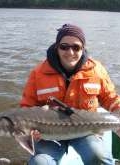Marine Policy
The Masters Program in Marine Policy was founded on the idea that the effective application of marine policy requires practitioners, first, to be fluent in the languages and concepts of both the social and natural sciences, and second, to be able to translate those languages to, and for, users of the resource. As a consequence, the design of a student’s program is flexible and adapted to her or his previous background and work experience.
The Master of Science degree in Marine Policy in the School of Marine Sciences is designed to take advantage of the strong interdisciplinary nature of the School. The program is intended for students interested in the application of science and policy. It is intended as a terminal degree but does not rule out continuation to a Ph.D. The course of study is two years.
All students in the program will receive training in the social science aspects of marine resource management, in marine sciences, and in empirical methods. In addition, students will be expected to gain expertise in either living natural resources or coastal zone management. The program offers both a thesis and a non-thesis option. For more degree requirements, consult the Handbook for Graduate Programs.
Participating Faculty
-

Damian C. Brady, Ph.D.
Agatha B. Darling Professor of Oceanography
207.312.8752
-

-

Teresa Johnson, Ph.D.
Professor of Marine Policy
207.581.4362
-

Heather Leslie, Ph.D.
Professor of Marine Sciences
207.563.8115
-

Michelle Staudinger
Associate Professor
207.563.8304
-

-

Joshua Stoll, Ph.D.
Associate Professor of Marine Policy
207.581.4307
-

James (Jim) Wilson, Ph.D.
Professor Emeritus of Marine Policy
207.581.4368
-

Gayle Zydlewski, Ph.D.
Professor and Director of Maine Sea Grant
207.581.4365
